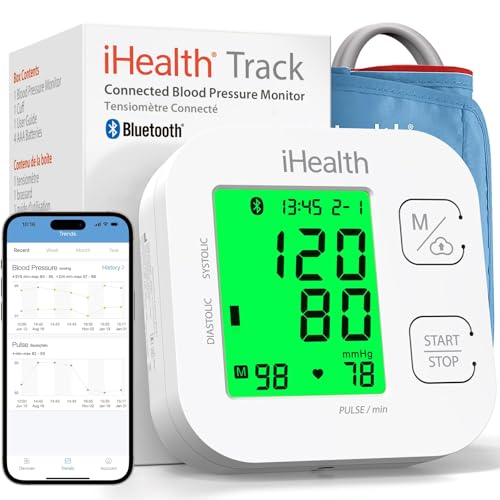Postpartum care is essential for managing chronic conditions after birth. You face increased risks for issues like hypertension, diabetes, and obesity during recovery. It’s important to reach out for care within the first three weeks postpartum to address potential complications. Shifting to primary care can be challenging, but integrated strategies can help. Plus, recent policy changes support ongoing postpartum health. Discover how these resources can enhance your recovery and long-term well-being.
Key Takeaways
- Postpartum care is crucial for women with chronic conditions to prevent complications like hypertension and diabetes after childbirth.
- Coordination between obstetric and primary care is essential for managing ongoing health issues postpartum.
- Recognizing warning signs of complications, such as chest pain or extreme fatigue, is vital for timely medical intervention.
- Integrated care strategies involving patient education and support from healthcare teams improve chronic disease management after birth.
- Policy changes extending Medicaid coverage to 12 months postpartum enhance access to necessary ongoing care and resources.

iHealth Track Smart Upper Arm Blood Pressure Monitor with Wide Range Cuff That fits Standard to Large Adult Arms, Bluetooth Compatible for iOS & Android Devices
Clinically Accurate: Easy Operation by two buttons, Advanced Accuracy, No Calibration required.
As an affiliate, we earn on qualifying purchases.
As an affiliate, we earn on qualifying purchases.
Importance of Postpartum Care for Women With Chronic Conditions

Postpartum care is vital for women with chronic conditions, as it greatly influences their recovery and long-term health. If you have conditions like hypertension, diabetes, or obesity, you’re at a higher risk for complications postpartum. Early care helps identify potential issues, ensuring you and your baby get the necessary support.
The American College of Obstetricians and Gynecologists recommends reaching out within the first three weeks after birth. Attending these appointments is essential, especially for managing mood disorders and breastfeeding challenges.
Thorough care includes monitoring for infections, excessive bleeding, and high blood pressure, alongside nutritional advice and family planning discussions. Prioritizing your postpartum health can greatly enhance your well-being and prevent future complications for both you and your infant.

Mama's Select Postnatal Vitamins – Boosts Hair Recovery, Milk Supply, & Wellness – Allergen-Free, Vegan, MTHFR Friendly, Methylated Folate & B Vitamins, Easy-to-Swallow, No Biotin – 30 Capsules
Supports Postpartum Hair Recovery: Specially formulated to help combat postpartum hair loss, our vitamins provide essential nutrients to…
As an affiliate, we earn on qualifying purchases.
As an affiliate, we earn on qualifying purchases.
Transitioning From Obstetric to Primary Care

How do new mothers navigate the change from obstetric to primary care? This shift can be challenging due to a lack of coordination between healthcare providers. You might find that advice about the importance of follow-up care isn’t emphasized enough during your maternity visits.
With primary care providers essential for managing chronic conditions, it’s critical to establish ongoing health maintenance. However, barriers like provider shortages and insurance issues can complicate matters. Engaging in patient navigation programs can help you overcome these obstacles, making it easier to access care. Understanding advance directives can also be crucial for ensuring that your healthcare preferences are honored as you transition to managing your health post-birth.

4 Pairs Compression Socks for Women Circulation-Best Support for Nurses,Running,Athletic,Travel ,Hiking,Yoga,Gym,Basketball,Baseball,Football, Soccer,White,Pink Knee High Sock Gifts L-XL
All-Day Comfort Compression Socks – These compression socks are designed for long-lasting comfort, perfect for anyone on their…
As an affiliate, we earn on qualifying purchases.
As an affiliate, we earn on qualifying purchases.
Recognizing and Addressing Postpartum Complications

Recognizing the signs of postpartum complications is essential for new mothers, as these issues can arise unexpectedly and may pose serious health risks.
Complications can occur immediately after delivery or up to 12 weeks postpartum, including infections like endometritis, heavy bleeding from postpartum hemorrhage, or thrombotic events such as deep vein thrombosis.
Watch for warning signs like chest pain, trouble breathing, fever, and extreme fatigue. If you notice these symptoms, seek medical help immediately.
Radiologists play an important role in diagnosing these conditions through imaging techniques like ultrasound and CT scans.
Early identification and treatment are critical to ensuring your health and recovery during this important period. Stay informed and proactive in monitoring your well-being.

My Brest Friend Nursing Pillow – Deluxe – Enhanced Comfort w/ Slipcover – Ergonomic Breastfeeding Pillow For Ultimate Support For Mom & Baby – Adjustable Pillow W/ Handy Side Pocket, Soft Rose
ERGONOMIC DESIGN: Elevate your nursing journey with our unique nursing pillow. The wrap-around feature ensures ideal positioning &…
As an affiliate, we earn on qualifying purchases.
As an affiliate, we earn on qualifying purchases.
Integrated Care Strategies for Chronic Disease Management

To effectively manage chronic diseases, it’s vital to adopt integrated care strategies that prioritize patient-centered approaches.
You’ll benefit from multi-component chronic disease management programs that include planned visits, education, and coaching on healthy behaviors. These programs often use the Chronic Care Model, emphasizing self-management and provider support tailored to your specific conditions like diabetes or hypertension. Implementing effective relaxation techniques can also be beneficial in managing stress associated with chronic conditions.
Collaborative care among diverse healthcare professionals guarantees you receive thorough treatment. Developing a roadmap for equitable care before, during, and after pregnancy is fundamental, especially for women with chronic conditions.
Engaging community health workers can enhance care delivery, particularly for vulnerable populations, while maintaining continuity in your postpartum care will help manage any ongoing health issues effectively. Additionally, utilizing nutrition-rich foods can further support overall health and wellbeing during the postpartum period.
Policy Changes and Community Support for Postpartum Health

Integrated care strategies for managing chronic diseases lay a strong foundation for addressing postpartum health.
The American Rescue Plan Act (ARPA) allows states to extend Medicaid coverage for birthing individuals from 60 days to 12 months postpartum, making a significant difference in care access.
With the Consolidated Appropriations Act of 2023, this extension is now permanent.
Community support initiatives, including doulas and health workers, enhance postpartum well-being by addressing social needs.
Effective reimbursement policies treat postpartum care as an ongoing process, improving health outcomes.
Frequently Asked Questions
What Lifestyle Changes Can Help Manage Chronic Conditions Postpartum?
To manage chronic conditions postpartum, focus on adopting healthier lifestyle changes.
Start by eating a balanced diet rich in whole grains, fruits, and vegetables. Incorporate moderate exercise, like walking, into your routine, and stay hydrated.
Prioritize getting enough sleep to aid recovery and monitor your weight regularly.
Finally, keep an eye on your blood pressure and blood sugar levels, making adjustments as needed to support your overall health and well-being.
How Can Partners Support Women With Chronic Conditions After Childbirth?
Partners can support you with chronic conditions after childbirth in various ways.
They can provide emotional support, encouraging open communication about your mental health needs. Helping with household chores and childcare allows you to focus on recovery.
They can also assist with meal prep, medication management, and attending medical appointments.
Mobilizing support from family and friends enhances your resources, making it easier for you to manage your health effectively and feel less isolated.
Are There Specific Resources for Mental Health Support Postpartum?
Imagine you’re feeling overwhelmed after your baby’s birth, and you just want to talk to someone who understands.
There are specific resources for mental health support postpartum. The National Maternal Mental Health Hotline, available 24/7 at 1-833-TLC-MAMA, connects you with trained counselors ready to listen.
Additionally, Postpartum Support International offers a helpline at 1-800-944-4773, providing valuable support and resources tailored to your needs.
You’re not alone; help is just a call away.
What Should I Expect During My Postpartum Visit?
During your postpartum visit, expect a thorough evaluation of your physical and mental health.
You’ll have your blood pressure checked, and a pelvic exam to assess healing. Your doctor will discuss breastfeeding, emotional support, and your adjustment to motherhood.
They’ll also talk about lifestyle changes, including exercise and nutrition. If you have chronic conditions, they’ll coordinate ongoing care.
Finally, make certain your vaccinations are up-to-date and schedule any necessary follow-up appointments.
How Can I Track My Recovery and Health Progress Postpartum?
To track your recovery and health progress postpartum, start by scheduling regular checkups with your healthcare provider.
Use self-assessment tools, like journals or apps, to monitor your symptoms and daily activities.
Stay connected with your support network, as emotional well-being is just as important.
Don’t hesitate to reach out for help when needed, and consider utilizing online resources for additional guidance throughout your recovery journey.
You’re not alone in this process!
Conclusion
In your journey through postpartum care, prioritizing your health is essential, especially with chronic conditions. Don’t let the intimidating days of recovery deter you; instead, embrace the opportunity to engage with integrated care. Support systems and community connections can empower you to conquer challenges and cultivate wellness. Remember, you’re not alone—together, we can transform trials into triumphs, ensuring a healthier, happier you as you navigate this new chapter of motherhood.









